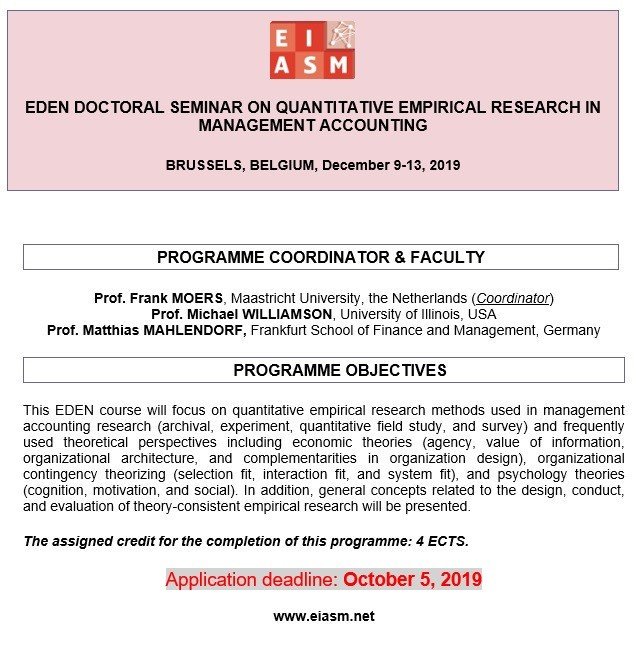
Managerial accountants use information relating to the cost and sales revenue of goods and services generated by the company. Cost accounting is a large subset of managerial accounting that specifically focuses on capturing a company’s total costs of production by assessing the variable costs of each step of production, as well as fixed costs. It allows businesses to identify and reduce unnecessary spending and maximize profits. Management accountants (also called managerial accountants) look at the events that happen in and around a business while considering the needs of the business. Cost accounting is the process of translating these estimates and data into knowledge that will ultimately be used to guide decision-making.
They are also called cost accountants, managerial accountants, industrial accountants, private accountants, or corporate accountants, but they all perform similar functions within a company. Preparing data for use within a company is one of the features that distinguishes a management accountant from other types of accounting jobs such as public accounting. Financial accounting, costing, business analysis, economics, etc are some tools and techniques of management accounting. It uses information from varied disciplines like Financial Accounting, economics, Statistics, Cost Accounts, engineering etc. Limitations of the knowledge and experience of the Management Accountant in such diverse fields can make the data unreliable and undependable.
If there are deviations of actuals from the predetermined results, corrective action is taken and predicted objectives are achieved. This becomes possible with the help of management accounting techniques of standard costing and budgetary control. Each of these techniques or concepts is a useful tool for specific purpose in analysis and interpretation of data, establishing control over operations, etc.
Namely, it evaluates the work of all company units and makes conclusions related to the financial performance. That way, you get to learn the reasons for both the loss and the profit generated by your departments.
In such circumstances, it is much easier for senior executives to reduce operational costs. Management accountants often begin their careers as staff accountants to learn the fundamentals of accounting and how a business functions, Kuchen says. From these roles, they may advance to become senior accountants or senior analysts, then to accounting supervisors, to controllers, to chief financial officers (CFOs).
Lean accounting (accounting for lean enterprise)
The terminology of cost accounting had no reference to the word ‘management accountancy’ before the visit by this study group. Intensive competitions, large scale production, dynamic developments in technology, and complexities of modern business have led to the development of management accounting-to solve many of the problems.
For instance, a business may have a large increase in customer demand. To meet demand, a manager may prudently authorize significant overtime. This overtime may result in higher than expected wage rates and hours. As a result, a variance analysis could result in certain unfavorable variances.
What do you mean by management accounting?
Definition: Management accounting, also called managerial accounting or cost accounting, is the process of analyzing business costs and operations to prepare internal financial report, records, and account to aid managers’ decision making process in achieving business goals.
Management accounting
And, sensitivity analysis is needed to determine how sales and costs will respond to changes in market conditions. Accrual accounting is based on the matching principle, which is intended to match the timing of revenue and expense recognition.
Costing is such an extensive part of the management accounting function that many people refer to management accountants as “cost accountants.” But, cost accounting is only a subset of managerial accounting applications. In contrast, managerial accounting analyses and results are kept in-house for business leaders to use to drive decision-making and run the company more effectively.
Consistent with other roles in modern corporations, management accountants have a dual reporting relationship. Management accounting is helpful in realising the enterprise objectives. Based on the historical information and with adjustments for predicate future changes, objectives are laid down.
Management Accounting Definition
- Management accounting is only used by the internal team of the organization, and this is the only thing which makes it different from financial accounting.
- In this process, financial information and reports such as invoice, financial balance statement is shared by finance administration with the management team of the company.
- Management accounting also is known as managerial accounting and can be defined as a process of providing financial information and resources to the managers in decision making.
Management accounting also is known as managerial accounting and can be defined as a process of providing financial information and resources to the managers in decision making. Management accounting is only used by the internal team of the organization, and this is the only thing which makes it different from financial accounting. In this process, financial information and reports such as invoice, financial balance statement is shared by finance administration with the management team of the company. Objective of management accounting is to use this statistical data and take a better and accurate decision, controlling the enterprise, business activities, and development. Managerial accountants perform cash flow analysis in order to determine the cash impact of business decisions.
Most companies record their financial information on the accrual basis of accounting. Although accrual accounting provides a more accurate picture of a company’s true financial position, it also makes it harder to see the true cash impact of a single financial transaction. A managerial accountant may implement working capital management strategies in order to optimize cash flow and ensure the company has enough liquid assets to cover short-term obligations. Managerial accounting encompasses many facets of accounting aimed at improving the quality of information delivered to management about business operation metrics.
To build a brand requires considerable investment with an uncertain payback. Frequently, the same product can be “positioned” as an elite brand via a large investment in up-front advertising, or as a basic consumer product that will depend upon low price to drive sales. Information is needed to make the decision, and management will likely enlist the internal accounting staff to prepare prospective information based upon alternative scenarios. Likewise, product pricing decisions must be balanced against costs and competitive market conditions.
Management Accounting rarely maintains basic and primary records of operations, expenses and revenues. It derives all of its Primary data from Financial Accounting, cost Accounting and other relevant records. So, the accuracy .and reliability of the conclusions derived by Management Accounting is limited to the reliability of its sources of data, so, it suffers from several of the limitations of Finance Accounts and cost Accounts. The term was first used in 1950 by a team of accountants visiting U.S.A. under the auspices of Anglo-American Council on productivity.
They will usually work side-by-side with management in helping correctly interpret and utilize the information. It is worthwhile for a good manager to study the basic principles of managerial accounting in order to better understand how information can be effectively utilized in the decision process. Mulling says management accountants often make their mark at companies as vital decision-makers and have opportunities to advance in many different areas. He says the best way to advance is by volunteering to work on various projects and decision-making tasks in your company to increase your knowledge of the company and your role in its success.
However, Mulling says, the career ladder can go in many different directions depending on your individual goals. He says management accounting usually starts with obtaining a bachelor’s degree and then working toward a CMA certification. Cost accounting is a form of managerial accounting that aims to capture a company’s total cost of production by assessing its variable and fixed costs. There are routes into a career in management accounting for both university graduates and school leavers.
Business managers should become familiar with these more robust flexible tools, and they are covered in depth in subsequent chapters. Branding / Pricing / Sensitivity / Competition — In positioning a company’s products and services, considerable thought must be given to branding and its impact on the business.
Resource consumption accounting (RCA)
However, this added cost was incurred because of higher customer demand and was perhaps a good business decision. Therefore, it would be unfortunate to interpret the variances in a negative light. To compensate for this type of potential misinterpretation of data, management accountants have developed various flexible budgeting and analysis tools. These evaluative tools “flex” or compensate for the operating environment in an attempt to sort out confusing signals.
Traditional approaches limit themselves by defining cost behavior only in terms of production or sales volume. Knese’s career provides an example of one of the many possible professional paths for management accountants. He started out as a public accountant and earned the CPA credential, then advanced to management accounting and earned the CMA credential. A strong manager must understand how costs are captured and assigned to goods and services.
He also recommends getting involved in your profession at the local or global level. He says the Institute of Management Accountants(IMA) provides that opportunity and also helps professionals create a network for career opportunities, skill enhancement, and decision support. Kuchen adds that devising new systems, business processes, and analyses that save the company money and help it run more efficiently, along with showing an interest in and aptitude for cost accounting, will help you advance. A management accountant will analyze these basic data and make forecasts, budgets, performance measurements and plans, then present them to senior management to assist in its operational decision making. Management accountants work for public companies, private businesses, and government agencies.
A company may also have research and training materials available for use in a corporate owned library. This is more common in Fortune 500 companies who have the resources to fund this type of training medium. Given the above, one view of the progression of the accounting and finance career path is that financial accounting is a stepping stone to management accounting. Consistent with the notion of value creation, management accountants help drive the success of the business while strict financial accounting is more of a compliance and historical endeavor.
By matching revenues with expenses, the accrual method is intended to give a more accurate picture of a company’s true financial condition. Under the accrual method transactions are recorded when they are incurred rather than awaiting payment. This means a purchase order is recorded as revenue even though fund are not received immediately. The same goes for expenses in that they are recorded even though no payment has been made.
With experience (at least five years), management accountants can work their way up to senior roles such as financial controller, finance director, or the CFO of a company. They advise managers about the financial implications of business decisions to aid growth and profit. There is also a difference in the accounting certifications typically found in each of these areas. People with the Certified Public Accountant designation have been trained in financial accounting, while those with the Certified Management Accountant designation have been trained in managerial accounting.
These include margins, constraints, capital budgeting, trends and forecasting, valuation and product costing. Decisions about positioning a company’s products and services are quite complex. The prudent manager will need considerable data to make good decisions. Management accountants will be directly involved in providing such data.

“Management accountants expand this base of skills to include knowledge of cost accounting and, my favorite, finance tools such as discounted cash flow,” he says. There are a variety of ways to keep current and continue to build one’s knowledge base in the field of management accounting. Certified Management Accountants (CMAs) are required to achieve continuing education hours every year, similar to a Certified Public Accountant.